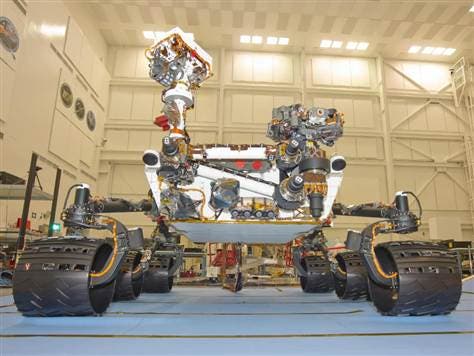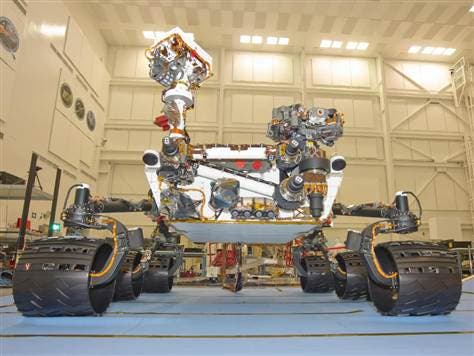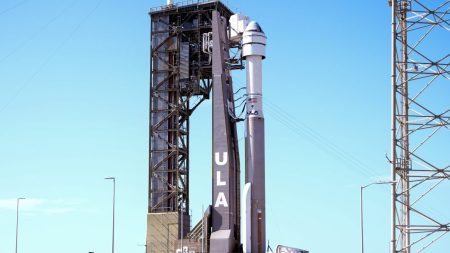
Every NASA spacecraft sent to missions on other space bodies, like other planets, asteroids or moons, needs to adhere to a strict internal protoocl which needs to ensure that no biological contamination is brought in from Earth. This is a vital preparatory step before the launch of a spacecraft, especially if the later in cause is sent for a life exploration mission.
NASA’s Curiosity rover, however, on route to its destination since it launched on November 26, had a mishap in its cleaning phase, and as such some of its drill bits weren’t sterilized properly, after a final ultra-cleanliness step wasn’t ensured, thus deviating from the planetary protection plans scripted for the Mars Science Laboratory mission.
The Mars Science Laboratory rover Curiosity main goal is that of asserting whether or not the Mars environment is or was ever able to support life, however its intention is not that of looking for life itself. During its analysis, Curiosity will gather samples from the Martian surface either scooped up or drilled.
It’s imperative for equipment in place on the Curiosity rover to be sterilized, to make sure that life doesn’t get transported from Earth to Mars. This way, you can be certain that your samples don’t get contaminated and an accurate assessment can be made, otherwise signs for native life might be confused for common bacteria transported millions of miles away from Earth.
Now, don’t think that Curiosity is contaminated beyond return. It’s the most sterile lab equipment ever sent into an interplanetary mission since the Viking lander in the 1970s, and its target landing spot, the Gale Crater, is free of potentially life-harboring ice. Still, the drill sterilization mishap is a sign that there is room for extra improvement on future missions.
“It would have been better for them to check with me before they opened the box of bits to confirm that it was OK … rather than trying to ask for it afterwards,” Catharine “Cassie” Conley, NASA’s planetary protection officer said. “In this case it was fine. But for future missions we want to make sure that they ask beforehand.”









